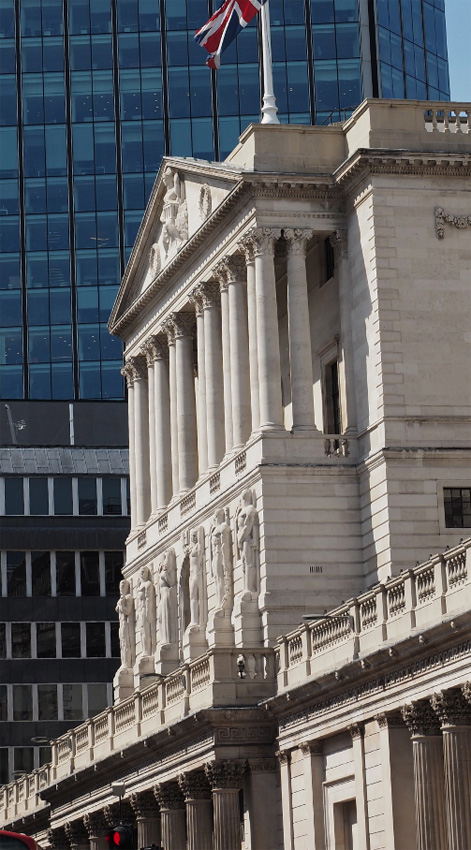January 2018 saw the implementation of a new series of rules concerning Open Banking. But what is Open Banking and how might it affect you?
Open Banking is a new directive that came into force on 13th January this year. It was initiated by UK competition watchdog, the Competition and Markets Authority (CMA) and runs alongside the Second Payment Services Directive (PSD2), an essential piece of payments related legislation in Europe, which requires that all Member States implement these rules as national law.
Increased competition
The idea is that, together, the new initiatives will increase competition and innovation in the banking industry and, hopefully, translate to more choice and better financial services and products and enable you to move your accounts and use your money more easily. The hope is that customers will be encouraged to switch providers and that this will combat stagnation.
Put simply, it should be a good thing!
The key is the sharing of financial data that, historically, has not been allowed. In Open Banking, all UK-regulated banks will have to let you share your own information, such as your bank, credit card or savings statements, with other banks or authorised companies offering financial services; ownership of personal data is essentially transferred to you, the consumer.
But if the prospect of your personal data being released from the safety of the bank you’ve been with for years fills you with alarm, panic not! While it might sound scary, in actual fact, you are gaining more control over your personal information; data sharing will only take place if you, the account holder, give permission.
 The rules also mean that banks must ensure that customers who choose to share their data, do so securely and simply. In theory, it should be easier to access and use a range of financial services than it has been in the past.
The rules also mean that banks must ensure that customers who choose to share their data, do so securely and simply. In theory, it should be easier to access and use a range of financial services than it has been in the past.
So, if you decide to allow your bank to share your data, what opportunities might present themselves?
Well, it is expected that FinTech companies will become even bigger players, offering a growing range of technological financial services. FinTech is new technology and innovation that aims to compete with traditional financial methods in the delivery of financial services. For example, apps that connect to bank accounts and analyse spending. The benefits of such technologies is that they could, based on their analysis of your personal spending habits and financial circumstance, recommend new products such as credit cards or savings accounts to help you save money, offer advice on how to budget more efficiently or show comparisons between different deals on the market. Similarly, consumers may take advantage of a process called, ‘account aggregation’ – banking apps that collate and display all of your accounts (even if they are with different banks) on one screen, giving you a clear and accessible overview of your finances.
New opportunities
In essence, sharing your data and using these services, should, among other things, open up opportunities to get better deals on savings accounts, overdrafts and mortgages.
However, as with any new initiative, there may be risks as well as benefits. One potential risk is that banks, who traditionally have had an exclusive relationship with customers and been able to closely monitor spending patterns, may have a more limited view once Open Banking is in full swing. This could make it more difficult to flag up any unusual or suspicious spending behaviours and alert customers accordingly.
Similarly, with customers using multiple banks and services, the lines of accountability may become blurred; while traditionally banks have had to protect their customers and their relationships with them, and take responsibility for combating financial crime and fraud, changes brought about by Open Banking make it less clear who is responsible for maintaining security for customers.
Third party risk
Another risk that may evolve as a result of Open Banking and the involvement of third parties, is that cases of fraud may increase. For example, Natwest warns that copycat websites could pretend to be third party providers, scammers could pose as third parties and third parties could ask for passwords. They also predict an increase in unsolicited emails into your inbox, so beware; if you receive an email and you don’t remember signing up to that service or provider, then it is probably better and safer that you delete it.
What’s important is that if you decide to take advantage of the new rules, you are fully aware of the potential risks and how to manage and minimise them. Many banks are already offering advice on this.
Extra time
There are nine core UK banks who are required to comply with the new Open Banking rules: Barclays, Lloyds, Danske, RBS, Santander, Bank of Ireland, AIBG, Nationwide and HSBC. However, not all are ready to roll it out – Lloyds was reportedly the only high street bank who met the deadline, while five others have been granted extra time to meet the terms.
While the full effects won’t be felt until all nine banks are ready to begin sharing data, many see the potential for Open Banking to bring about a revolutionary change in the way we use financial services. And remember, if the thought of Open Banking fills you with dread, then you just say no – nobody can, or will, force you to take part!
For more information visit www.openbanking.org.uk/




